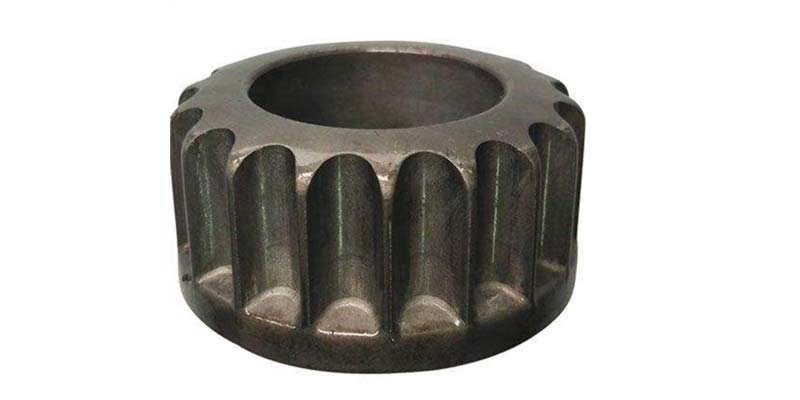- Contact Innally, Let you purchase forgings in China more favorable prices, products more assured!
- Hotline:+(86)15038323776 Email:innally@innally.com
Common material choice for lifting machinery forgings
- Category: Steel forgings, Thermal forging
- |
- Date: 05/12/2023
When selecting materials, factors such as strength, toughness, wear resistance, corrosion resistance and cost must be considered comprehensively. Through reasonable material selection and process control, safe, durable and efficient lifting machinery forgings can be produced, providing a strong guarantee for engineering construction and production activities.
Product Details
Lifting machinery forgings are the core components of lifting machinery, and the choice of materials is directly related to the safety, durability and efficiency of lifting machinery. Therefore, when choosing the material of lifting machinery forgings, various factors must be considered, such as strength, toughness, wear resistance, corrosion resistance and so on. This article will introduce the common material choices of lifting machinery forgings, and analyze their advantages and disadvantages to help readers make informed decisions.
- Carbon steel
Carbon steel is a common lifting machinery forging material, with excellent strength and toughness. Among them, medium and high carbon steel are usually used to manufacture hooks, rings and other forgings that need to withstand heavy loads. The heat treatment performance of carbon steel is good, and its mechanical properties and structure can be adjusted by quenching and tempering processes. In addition, the cost of carbon steel is relatively low and suitable for mass production.
However, the corrosion resistance of carbon steel is poor, and it is easy to rust and corrosion under the influence of moisture, chemicals, etc. Therefore, when using carbon steel to manufacture lifting machinery forgings, appropriate surface treatment must be carried out, such as galvanizing, spraying, etc., to improve its corrosion resistance.

Second, alloy steel
Alloy steel is a kind of carbon steel with added alloying elements, which has higher strength and toughness and better corrosion resistance. Common alloying elements include chromium, nickel, molybdenum, etc. These elements can refine the grain of steel and improve its mechanical properties and corrosion resistance. Therefore, alloy steel is usually used to manufacture lifting machinery forgings that need to withstand heavy loads and harsh environments, such as chains, slings, etc.
Alloy steel has a higher cost compared to carbon steel, but its excellent properties make it widely used in many high-end applications. In addition, the manufacturing and processing difficulty of alloy steel is also higher, requiring higher technical levels and equipment investment.
Three, stainless steel
Stainless steel is a kind of steel with excellent corrosion resistance, suitable for wet, corrosive environment. The main components of stainless steel are chromium and nickel, which can form a dense oxide film to prevent further corrosion of the steel by moisture and chemicals. Therefore, stainless steel is often used in the manufacture of lifting machinery forgings that need to work in harsh environments, such as dock cranes, ship cranes, etc.
The cost of stainless steel is higher, but its long service life and good corrosion resistance can reduce maintenance costs and replacement costs. In addition, the aesthetics and hygiene of stainless steel also make it favored in many applications.
Four, aluminum alloy
Aluminum alloy is a lightweight, high-strength metal material with excellent corrosion resistance and processability. The density of aluminum alloy is small, which can reduce the weight of lifting machinery and improve its work efficiency. In addition, the electrical and thermal conductivity of aluminum alloy is also good, which is suitable for lifting machinery forgings that need heat dissipation or electricity.
However, the strength of aluminum alloy is lower than that of steel, so it is mainly used to manufacture light-load or medium-load lifting machinery forgings. In addition, the higher price of aluminum alloys limits their use in some applications.
In summary, the common materials of lifting machinery forgings include carbon steel, alloy steel, stainless steel and aluminum alloy. When selecting materials, factors such as strength, toughness, wear resistance, corrosion resistance and cost must be considered comprehensively. Through reasonable material selection and process control, safe, durable and efficient lifting machinery forgings can be produced, providing a strong guarantee for engineering construction and production activities.
nannan
INNALLY mainly provides you with various types of cast and forged parts products. Welcome your inquiries! innally@innally.com
Related Products
Search
Forging center
- Steel forgings
- Aluminium alloy forging
- Titanium alloy forging
- Stainless steel forging
- Copper forging
- Automotive forgings
- Locomotive forging
- Bicycle forgings
- Motorcycle forging
- Rigging and fasteners
- Bearing forging
- Electric power fittings
- Marine forging
- Mechanical forgings for metalworking
- Mining machinery forgings
- Marine engineering forgings
- Construction machinery forgings
Popular product

© 2025. All Rights Reserved.






